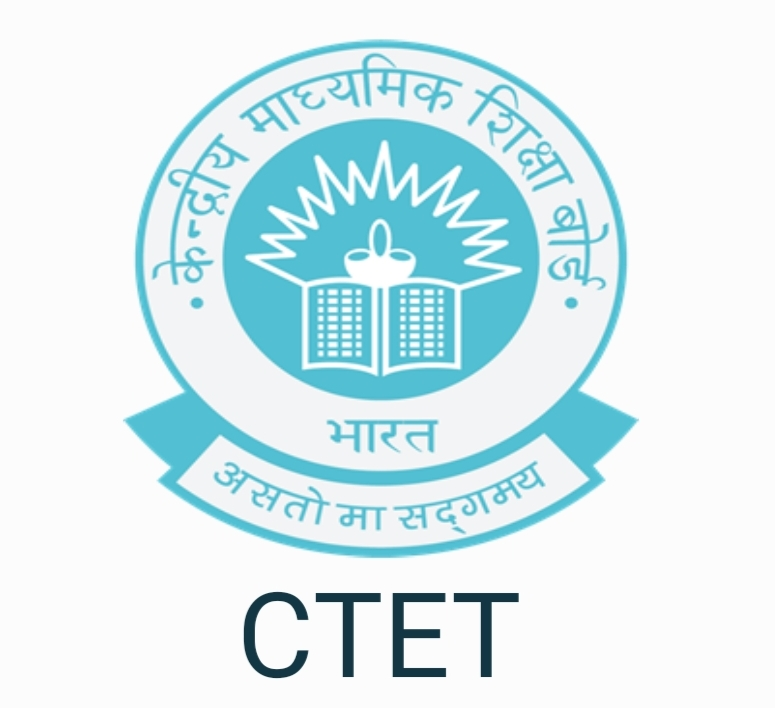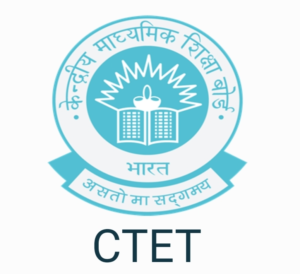CTET (The Central Teacher Eligibility Test )
The CTET exam is conducted in two levels:
- Primary Level: This level is for candidates who want to teach classes 1 to 5.
- Upper Primary Level: This level is for candidates who want to teach classes 6 to 8.
The CTET exam syllabus covers the following areas:
- Subject Knowledge: This section tests the candidate’s knowledge of the subjects they will be teaching.
- Teaching Pedagogy: This section tests the candidate’s understanding of teaching methods and techniques.
- Child Development: This section tests the candidate’s knowledge of child development and psychology.
- General Knowledge: This section tests the candidate’s general knowledge of the world around them.
150-question exam. The questions are multiple-choice and there is no negative marking. The minimum qualifying score for the CTET exam is 60%.
The CTET exam is held twice a year, in July and December. The application process for the CTET exam is online. The application form is usually released in April or May. The CTET exam results are announced in August or January. The results are available online.
A good score in the CTET exam is 90 or above. This score will give you a good chance of getting a job as a teacher in a central government school or a private school.
CTET Exam Pattern
In CTET Exam, there are two papers that are CTET Paper 1 & CTET Paper 2.
Paper-I, for the teachers who are willing to teach classes I to V.
Paper II, for the teachers who are willing to teach classes VI to VIII.
Someone who intends to teach for both levels (classes I to V and classes VI to VIII) will have to appear in both papers (Paper I and Paper II).
- Paper 1: This paper is for primary school teachers and consists of 5 sections:
- Child Development and Pedagogy (30 questions)
- Language I (30 questions)
- Language II (30 questions)
- Mathematics (30 questions)
- Environmental Studies (30 questions)
- Paper 2: This paper is for upper primary school teachers and consists of 4 sections:
- Child Development and Pedagogy (30 questions)
- Language I (30 questions)
- Language II (30 questions)
- Mathematics/Science or Social Studies (60 questions)
The total time duration for both the papers is 2hours 30 minutes, 150-question exam. The minimum qualifying score for the CTET exam is 60%. Each question carries 1 mark and there is no negative marking for incorrect answers.
After the CTET Certificate candidates can apply for all Central Government Teaching jobs like KVS, NVS Army Teacher, ERDO, etc. Without a CTET Certificate, candidates cannot apply for Central government teaching jobs. After CTET certificates Candidates can apply for some state government teaching Jobs. Some of the reputed private schools also ask for CTET certification to teach in their schools.
- CTET is mandatory to qualify to become a teacher in private and government schools. After qualifying, CTET candidates can apply to any private school, or government-aided school, and even can apply to an Army school.
- The Ministry of Education has extended the validity of the Central Teacher Evaluation Test (CTET) from 7 years to a lifetime
Eligibility Criteria for CTET Exam
National Council for Teacher Education (NCTE) has released a notification stating the revised CTET eligibility criteria for candidates Eligibility criteria for Primary & Upper Primary level CTET exams.
Age limit for CTET
As per the CTET age limit the minimum age to apply for the exam is 18 years. There is no maximum age limit specified to take the exam.
Educational Qualification for CTET
Candidates should pass 10+2 with a minimum of 50% aggregate marks for primary teacher.
Candidates should be a graduate with a minimum of 50% aggregate marks or 10+2 with at least 50 percent aggregate marks from a recognized university to be eligible for a secondary teacher.
Relaxation up to 5% in the qualifying marks shall be allowed to the candidates belonging to reserved categories, such as SC/ST/OBC/Differently abled.
Candidates appearing in the final year of a Bachelor’s Degree in Education or Diploma in Elementary Education, etc., are provisionally admitted.
One can follow these tips for preparing for the CTET exam:
- Start early: The CTET exam is a competitive exam, so it is important to start preparing early.
- Study the syllabus: Make sure you understand the syllabus for the CTET exam.
- Practice with mock tests: There are many mock tests available online. Practicing with mock tests will help you get used to the format of the exam and improve your time management skills.
- Stay positive: The CTET exam can be challenging, but it is important to stay positive and focused.
- Know the exam pattern and syllabus. The CTET exam pattern and syllabus are available on the NCTE website. Make sure you understand the exam format and the topics that will be covered in the exam.
- Create a study plan. Once you know the exam pattern and syllabus, you can create a study plan. Your study plan should be realistic and should take into account your individual learning style and time constraints.
- Choose the right study materials. There are a number of CTET study materials available, including books, online courses, and practice tests. Choose study materials that are aligned with the exam pattern and syllabus.
- Solve previous year’s question papers. Solving previous year’s question papers is a great way to get familiar with the types of questions that are asked in the CTET exam. This will also help you to identify your strengths and weaknesses.
- Take practice tests. Taking practice tests is another great way to prepare for the CTET exam. This will help you to get used to the time pressure of the exam and to identify areas where you need more practice.
- Get help from a tutor or mentor. If you are struggling with any particular topics, you can get help from a tutor or mentor. A tutor can help you to understand the concepts and to develop your study skills.
- Stay motivated. The CTET exam can be challenging, but it is important to stay motivated. Set small goals for yourself and celebrate your successes.
- Take breaks. It is important to take breaks when you are studying. This will help you to stay focused and to avoid burnout.
- Get enough sleep. Getting enough sleep will help you to stay alert and to perform your best on the exam.
- You can become Headmaster in a secondary and primary school.
- You can get the position of A senior teacher, Assistant teacher in a primary/secondary school and a senior teacher in an Upper Primary School.
- There is also an opportunity to become a principal in higher grade schools.
Salary
- A CTET passed teacher working at the primary level gets about Rs 35,000 to 37,000.
- A teacher working at the upper-primary level receives a salary of Rs 43,000 to 46,000.
- A CTET qualified PGT teacher mostly gets a pay of Rs 48,000-50,000.
Recommended books to prepare for the CTET exam:
For Paper 1 (Primary School Teachers)
- A Complete Resource for CTET: Child Development and Pedagogy by Sandeep Kumar
- CTET & TETs Child Development & Pedagogy (Paper I & II) by Arihant Experts
- CTET Success Master Paper-I Teacher Selection for Class I-V by Arihant Experts
For Paper 2 (Upper Primary School Teachers)
- CTET & TETs Mathematics Exam Goalpost by Wiley
- CTET & TETs Environmental Studies & Pedagogy Class I-V by Arihant Experts
- Success Master CTET (Social Science /Studies) Paper 2 for Class VI-VIII by Pearson
These books are all written by experts in the field of education and cover all of the topics that are likely to be on the CTET exam. They also include practice questions and answer explanations, which can help you to assess your progress.One can also prepare for this exam using online study materials, pdfs, reference books.
Hope, this will help the aspiring teachers who wants to make a career in teaching.
- CTET & TETs Child Development & Pedagogy (Paper I & II) by Arihant Experts

